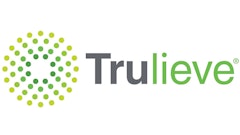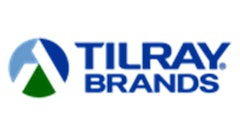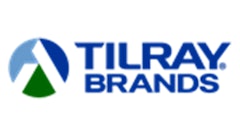
While Innovative Industrial Properties (IIP) executives were fortunate enough to be able to take the company public through an IPO in December 2016, most cannabis companies are denied this access to public markets due to federal prohibition, and must find more creative ways to raise capital.
IIP has a solution. The real estate company has set its sights on the regulated cannabis industry and provides real estate capital to medical cannabis business operators. As a real estate investment trust (REIT), IIP partners with qualified businesses and serves as a source of capital by acquiring and leasing back their real estate assets, according to Paul Smithers, the company’s chief executive officer, president and director.
IIP’s national portfolio comprises specialized industrial and greenhouse buildings for a total of 1,027,000 rentable square feet, with approximately 114,000 square feet under development, Smithers says. This space is leased to state-licensed medical cannabis growers in nine states: New York, Maryland, Arizona, Pennsylvania, Massachusetts, Minnesota, Michigan, Colorado and Illinois.
Since launching its IPO on the New York Stock Exchange (NYSE) in late 2016, IIP has increased its total assets to over $250 million, and with access to capital in the public markets, it has helped fund multiple cannabis projects, such as facility buildouts, Smithers says. As of late December, the company has invested or committed over $167 million in real estate transactions.
Removing Financial Barriers
IIP acquires properties from cannabis growers, who reinvest the proceeds into their core operations, Smithers says. The properties are then leased back to the cultivators under long-term, absolute net lease agreements.
“Our highly experienced team is institutionalizing the opportunity for entrepreneurs to continue to grow their medical cannabis businesses by removing financial barriers and providing them with growth capital,” Smithers says.
Most of the IIP team comes from Biomed Realty, which was a NYSE-listed life sciences REIT before it was taken private by asset management company The Blackstone Group in early 2016, Smithers says.
“After Blackstone’s acquisition of Biomed Realty, we began exploring opportunities for a company to exclusively focus on the medical-use cannabis industry and look to capitalize on the rapidly shifting regulatory environment, popular opinion and evolution of the industry,” he says. “The combination of high demand, barrier to entry and scarcity of capital led us to this opportunity that we really couldn’t pass up.”
Many growers start their businesses by borrowing money from friends and family, or through private equity sources that require them to give up a large part of their company, Smithers says. Through IIP’s sale/lease back opportunity, cultivators can instead leverage their real estate to free up capital.
Identifying Partners
When IIP identifies a grower who may be a fit for the sale/lease back option, it evaluates both the real estate and the operator to see if it’s a good fit, Smithers says. Numerous factors go into this analysis.
“First of all, we look at the quality of the management team and proven track record of success in other industries they may have been involved in,” Smithers says. “We look at their capital position. We look at the experience in the industry and breadth of operations, typically including multi-state operations.”
IIP seeks management teams with a strong culture of compliance with state regulations, and reviews all historical and projected financials. The company also evaluates the state’s cannabis program, including regulations, population size, qualifying conditions, licensing process and the general view of the public and state government.
“Our team has extensive experience in underwriting a lot of clients in the life sciences industry, and we apply that understanding and methodology to the management teams in the cannabis industry,” Smithers says. “In our view, it is critical to have an in-depth understanding of the potential tenant’s management team, including their experience, track record of success, reputation and most importantly, integrity. In short, we look for well-capitalized, experienced growers with well-seasoned management teams.”
Strong cultivation teams are preferred, he adds. “We understand that many of these companies in the new states are startups, and that doesn’t disqualify them from our program if they’re a startup, as long as they have the management team we like and they have retained an experienced grow team, from probably another state.”
Red flags for the IIP team include licensing or regulatory violations, Smithers says. “Have they been fined or flagged for noncompliance? That’s kind of a nonstarter for us.”
All Systems Go
Once a fit has been determined between a grower and the IIP team, there is no formal application process, but rather an open dialogue where IIP outlines its terms.
“Our terms are pretty simple,” Smithers says. “We have long-term leases, typically 15-20 years, with five-year renewal options. These are pure triple net leases, so the tenant is responsible for structure repairs and replacements throughout the term. We have fixed annual rental escalations, and we usually provide a [tenant improvement] (TI) allowance for [expansion].”
Prices are based on how much capital the tenant has invested into the building, and due to IIP’s access to capital markets, it is typically able to close a transaction within 60-90 days.
“We are one of the only U.S. cannabis-related companies to be listed on the New York Stock Exchange, and that gives a comfort to investors, and even our tenant operators, that we are a well-capitalized company [and] that we are qualified to trade on the New York Stock Exchange,” Smithers says. “It really brings an institutional feeling to this very nascent business. … I think [it] brings with you some inherent credibility as far as your financial well-being, and that translates well to this industry right now.”
Smithers says IIP will continue its search for qualified medical cannabis growers who can benefit from its program, and he is optimistic about where the industry is headed.
“I think the opportunities in 2019 are really positive for us,” he says. “We like the regulatory environment [and] the direction the federal government’s going in, so I think that’s going to be very beneficial for our growers, and therefore for us."






















